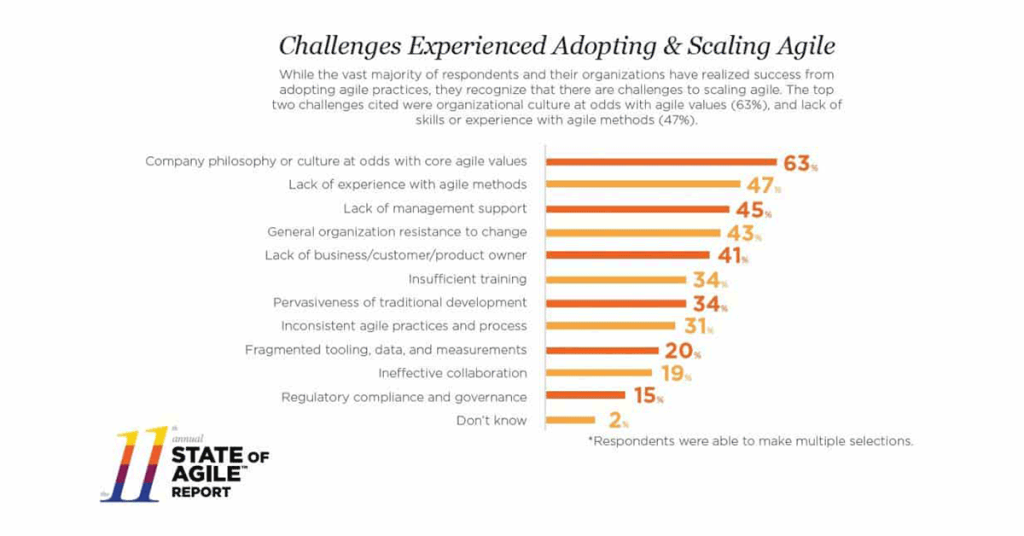I love this representation by Ahmad Sidky in his talk at Agile NewZeeland 2015, describing the elements of organizational culture and how Agile transformations influence them.
Transformations naturally start with a change in the process and the tools, which inevitably create tension that is supposed to catalyze a deeper change in other elements of the culture. Many implementations struggle and even get stuck at that stage. This is the hard part since it is mostly about people’s behaviors and habits and it takes time. This is exactly where HR professionals come in! I’m not trying to say that only at this stage HR people start partnering and pushing the transformation, I am only emphasizing their importance at this stage. HR departments are key in leading Agile transformations to long, lasting and truly impactful ones.
Speed is the “holy grail” of Agile. Strangely, it isn’t only about implementing some new technologies that help to build software faster. It also and mainly includes changing basic paradigms that lie at the core of the organizational culture.
Here are some aspects and examples that are part of HR responsibilities and activities that can push new paradigms into the organizational culture:
- Helping leaders with leading and shaping the change process and providing them with the tools to lead & coach in a way that grows teams’ autonomy, mastery, and purpose. Agile frameworks are built to enable it and it’s imperative to understand how to harness them effectively. The role of the manager is highly impacted from the transformation to Agile and as the managers are critical to the organization leaving them confused is a terrible loss.
- Leading the change in a way that engages people is crucial- sometimes a small mistake here can harm the transformation and take it many steps backward. The change itself requires constant inspecting and adapting, and through this practice, Agile ways of thinking are injected into the way the organization operates. The hardest challenge of Agility is collaboration across silos. HR people have this wide system view across silos and can help steer the change.
- Organizational restructuring – Agile transformation is not a one time change. The organization evolves and might have several structural changes that bring it closer to a value-driven Agile organization. People have new roles and responsibilities, new tools and practices they need to master. With Agile comes flexibility in terms of roles and responsibilities and it’s HR’s mission to define the structure of these new, flexible roles and responsibilities and to address any problems employees have during the transition.
- Creating collaborative workspaces: Agile team members need to be highly collaborative in their day-to-day work. HR can help create an open workspace where people can freely communicate to enhance this collaboration.
- Recruiting people that have the right mindset and attitude to work in an Agile environment is key. Some example characteristics: team players, T-shaped people – people that can contribute in areas that are not only in their main skill, people who have experience working in an Agile environment.
- Performance reviews influence people that understand which behaviors are appreciated in the organization. Therefore HR should stress aspects that encourage teamwork, continuous learning and early constructive feedback, self-management and taking ownership.
- People Engagement – very central to the Agile mindset is the engagement model. HR should help to build employees’ intrinsic motivation, creating an environment where people can influence, lead and take ownership. Bringing people closer to value creation.
The 11th State of an agile survey published this year keeps showing, as every year, that the main challenge for adopting Agile is organizational philosophy and culture. When those are at odds with Agile core values Agility is impeded.
HR professionals “own the keys” to the organizational culture and are therefore critical strategic partners in the transformation.
If you want to hear more about the experience of the organizations we worked with, come to an Agile for HR Professionals Workshop
